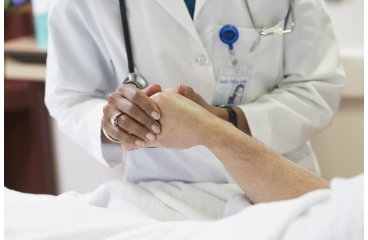What is it?
A fecal transplant is a procedure to restore healthy bacteria in the large intestine (colon). Healthy bacteria from a donor's stool is prepared and then put into your colon.
Why is it done?
A fecal transplant is usually done to treat an infection by balancing good and bad bacteria in your colon.
The colon normally contains a mix of bacteria. Some of the mix is good bacteria that keep the colon healthy. They don't cause disease. But when you take an antibiotic to kill bad bacteria, the medicine may also kill the good bacteria. Without the good bacteria, bad bacteria like Clostridioides difficile (also called C. diff) can cause serious illness. C. diff can cause diarrhea, fever, and belly cramps.
How is it done?
First, stool from a donor will be saved and then processed for the transplant.
Before the transplant, your doctor may ask you to do some things to prepare. You may need to go on a liquid diet. You may be asked to stop taking certain medicines. Your doctor may also have you take a laxative or other medicine to empty your colon.
There are several ways to get the donor stool into the colon. The most common is with a colonoscopy. But it may also be done by taking capsules, by having an enema, or through a nasal tube. Sometimes more than one method is used.
If you are not having capsules, the transplant is done in a doctor's office, a clinic, or a hospital. You may get medicine to help you relax.
In a colonoscopy, the doctor moves a thin, lighted tube through the colon. As the tube is removed, the stool is put in the colon.
If the stool is put in the colon with an enema, you will continue lying down for several minutes.
If you are using capsules, you will take them at home over a period of a few days. Follow your doctor's instructions on when and how to take them.
After the transplant, you may have some discomfort, such as cramps or bloating. These symptoms should go away on their own. Let your doctor know if they last or get worse. There's also a small chance of getting a new infection from the donor stool.
Follow-up care is a key part of your treatment and safety. Be sure to make and go to all appointments, and call your doctor if you are having problems. It's also a good idea to know your test results and keep a list of the medicines you take.


